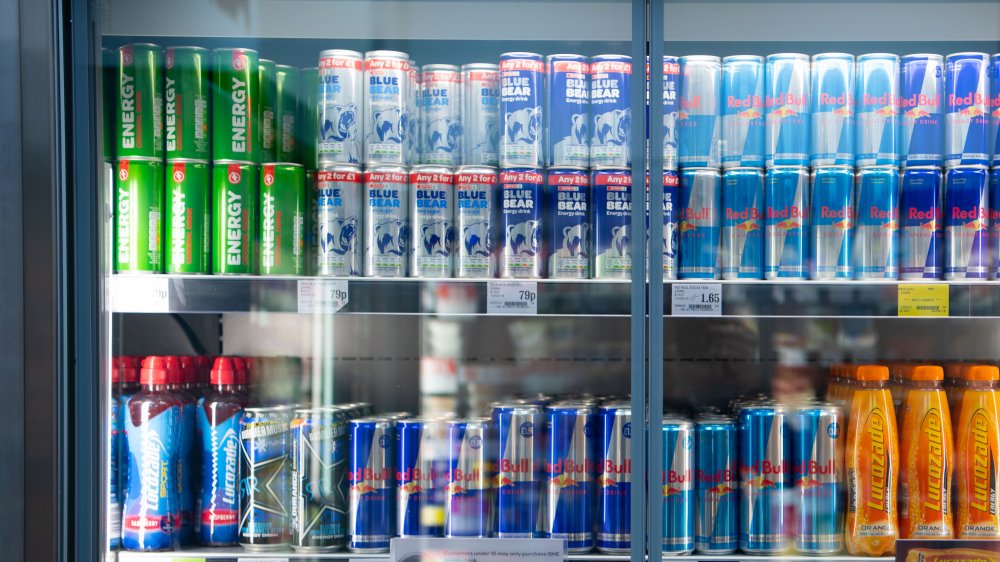How The Pandemic Changed The Way Americans Get Caffeine
A majority of people in the United States consume caffeine in some form or other each day (we're talking a large majority — 85 percent according to Science Direct), but just as we're buying more booze to drink at home and less from bars and restaurants (via Winsight Grocery Business), our caffeine habits have been warped by the COVID-19 pandemic as well. As our daily routines change, coffee is emerging as a winner. Sales of energy drinks, on the other hand, are slumping (via Food Navigator USA).
Energy drinks are still a growth business, and this year is no exception — even with the pandemic. It's just that sales of energy drinks in 2020 will likely grow only 3.67 percent, while the longer-term growth trend is expected to be 6.1 percent through 2024. Coffee sales, on the other hand, are expected to increase 8.3 percent this year — a big jump from the longer trend of 3.1 percent growth.
According to a report by Packaged Facts outlined by Food Navigator USA, part of the reason for this change involves where we shop for both of these caffeine sources. It turns out, 70 percent of all energy drinks sold in the U.S. come out of convenience stores. People tend to stop at these stores on their way to work or while getting gas — two other things we're doing less of this year.
Coffee sales are up, but Starbucks is down during the pandemic
The Packaged Facts report goes on to explain that coffee also sells especially well online compared to other beverages, noting that online grocery shopping has also surged during the pandemic. On the other hand, coffee sales through the foodservice sector (including businesses, schools, and restaurants) have taken such a huge hit that QSR Web says they aren't expected to return to "normal" 2019 levels until 2024.
One coffee company that hasn't done well in recent months is Starbucks. The popular coffee chain (who Insider states is the largest the world) closed many of its shops in the early weeks of the pandemic and has suffered from reduced traffic since. Nation's Restaurant News reported that sales at individual Starbucks stores during the months of April, May, and June dropped around 40 percent compared to the same period a year ago. More recently, things were looking up — or at least less down — for Starbucks. Comparable sales in August at Starbucks stores were down just 11 percent compared to August 2019, according to The Street. Dunkin' (a major Starbucks competitor) fared a bit better, with New York Mag reporting the chain's same-store sales were down to single-digit losses in the month of July.
Maybe this is a sign that caffeine lovers' spending habits are beginning to return to normal, which would be good news for the makers of energy drinks.

